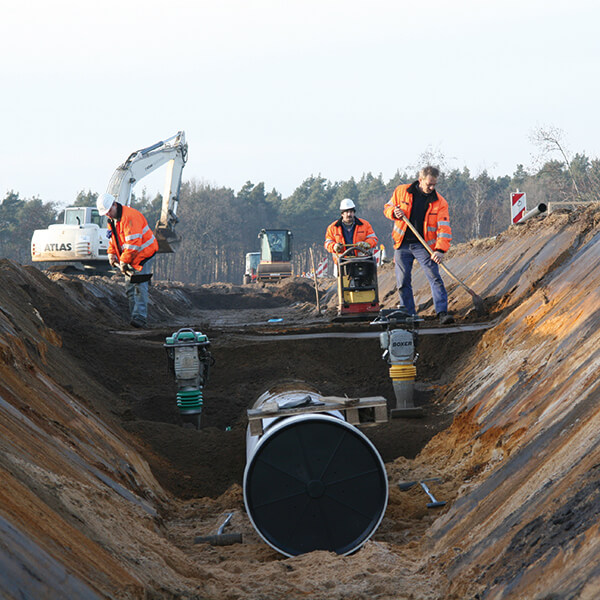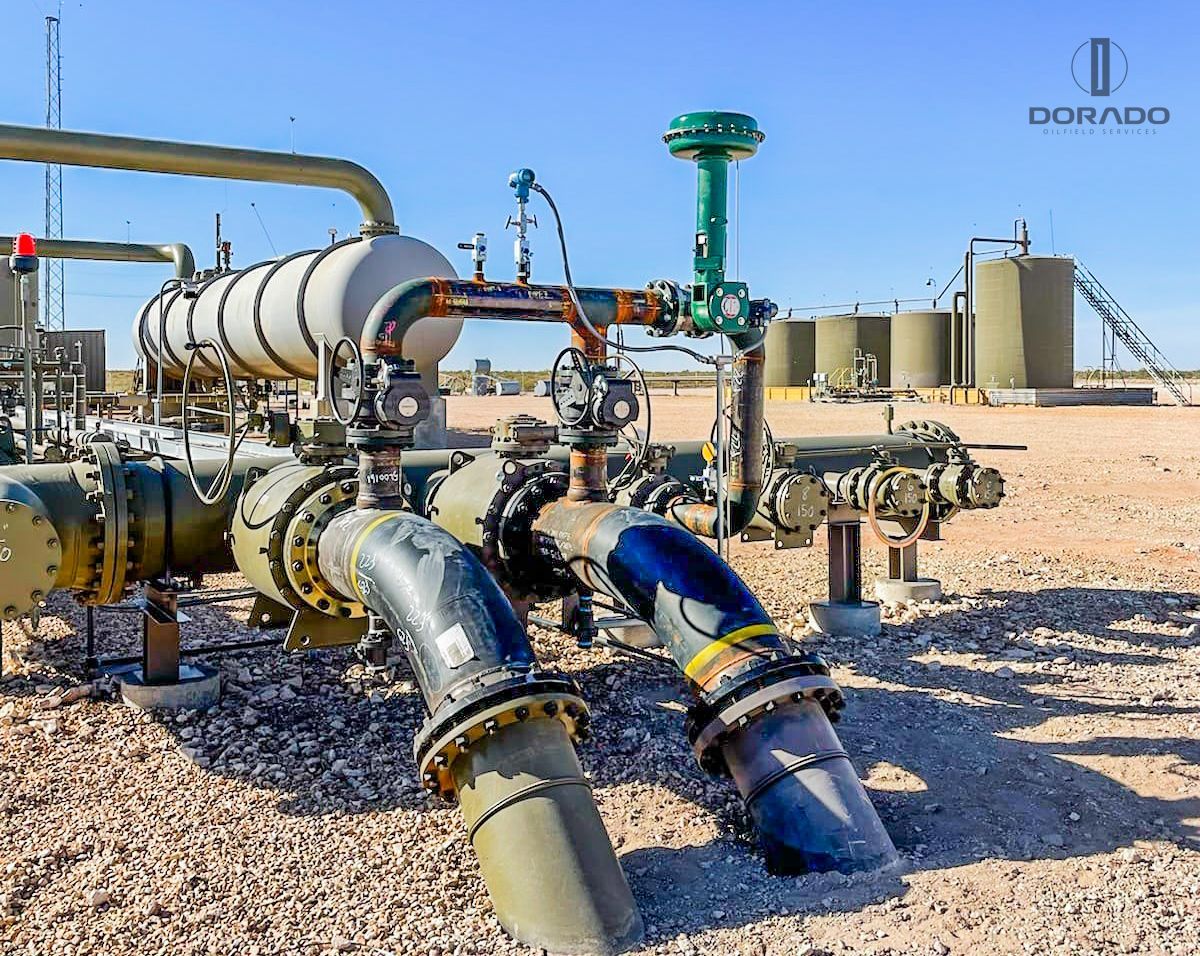How to Compare Pipeline Construction Services Bids Like a Pro
The Essential Overview to Recognizing Pipeline Construction Providers and Their Relevance
Pipeline Construction services are basic to the transportation of crucial sources such as water, oil, and gas. These services include careful planning and execution, sticking to strict security and ecological standards. As the industry adapts to modern difficulties, recognizing its components and implications comes to be significantly important. What variables add to the expanding value of these solutions in today's economy? The following areas will discover these critical facets.
Summary of Pipeline Construction Services
Pipeline Construction services encompass a variety of tasks vital for the installation and maintenance of pipelines used to transport various materials, including water, gas, and oil. These services are crucial for ensuring the effective and risk-free motion of resources from one area to another. The procedure generally begins with complete preparation and design, which takes right into account governing requirements, ecological factors to consider, and logistical challenges.
Excavation and grading of the land are carried out to prepare the site for Pipeline installment as soon as preparation is full. This is adhered to by the actual laying of the pipelines, which entails welding or joining areas together to produce a continual circulation path. After setup, strenuous testing is done to assure honesty and security. Upkeep services are additionally offered to attend to any issues that might occur over time. On the whole, Pipeline Construction solutions play a pivotal duty in sustaining facilities for energy and water distribution.
Trick Components of Pipeline Construction
A successful Pipeline Construction job relies upon a number of vital parts that ensure the effective and secure setup of the Pipeline system. Complete website evaluations are important, as they recognize the environmental and geographical aspects that might impact Construction. Next off, the selection of suitable products, such as pipes and installations, is vital for securing sturdiness and compatibility with the delivered materials.
Additionally, advanced Construction methods, consisting of trenchless modern technology and directional exploration, boost effectiveness and minimize environmental effect. Effective job monitoring is another essential element, collaborating labor, equipment, and timelines to meet job goals.
In addition, interaction among stakeholders, including engineers, service providers, and regional authorities, guarantees alignment on project specs and demands. Detailed top quality control procedures throughout the Construction process make sure conformity with market standards and optimize the Pipeline's operational life expectancy. Collectively, these components form the backbone of an effective Pipeline Construction job.
Safety Standards and Regulations in Pipeline Construction

Governing bodies, such as the Occupational Safety and Health Management (OSHA) and the Pipeline and Hazardous Materials Safety Management (PHMSA), established forth certain demands that control Construction methods. These consist of procedures for tools usage, worker training, and emergency response procedures. By carrying out these requirements, Construction companies not just secure their staff members but likewise safe and secure public trust fund. Inevitably, extensive safety and security actions contribute to the lasting success of Pipeline projects, ensuring they fulfill both ecological and operational expectations.
Environmental Considerations in Pipeline Projects

Environmental considerations are important to the preparation and implementation of Pipeline projects. These jobs have to examine prospective impacts on environments, water sources, and local wildlife. Carrying out comprehensive environmental impact evaluations (EIAs) is crucial, enabling stakeholders to identify and alleviate risks prior to Construction begins.
Protecting delicate areas, such as wetlands and environments, typically needs carrying out details design features or different routing to reduce interruption. In addition, Pipeline drivers are charged with establishing approaches for preventing leakages and spills, which can have terrible impacts on the environment.
Involvement with regional neighborhoods is necessary, as public worries can bring why not check here about project alterations that improve environmental security. Compliance with laws established by environmental agencies assures that jobs meet sustainability criteria, fostering an equilibrium in between framework requirements and environmental preservation. Inevitably, attending to ecological considerations not just safeguards nature however likewise advertises area trust fund and job feasibility.
The Role of Modern Technology in Pipeline Construction
Innovation plays an essential role in contemporary Pipeline Construction, enhancing performance and accuracy. Advanced evaluating techniques allow for accurate planning and implementation, decreasing environmental effect and project hold-ups. Furthermore, the integration of automation and robotics improves operations, minimizing labor expenses and improving safety and security on Construction sites.
Advanced Surveying Strategies
Advanced surveying techniques play a vital role in the effective execution of Pipeline Construction tasks. These approaches leverage sophisticated innovation to ensure specific mapping and evaluation of the terrain where pipes will certainly be mounted. Methods such as Geographic Details Systems (GIS), LiDAR (Light Detection and Ranging), and 3D modeling enable engineers to envision and evaluate the landscape, recognizing environmental concerns and potential challenges. By utilizing these innovative tools, teams can improve accuracy ready and alignment, greatly minimizing the threat of mistakes during Construction. In addition, real-time information collection permits prompt adjustments and informed decision-making throughout the task lifecycle. Ultimately, these surveying technologies contribute to enhanced effectiveness, security, and sustainability in Pipeline Construction initiatives.
Automation and Robotics

Economic Influence of Pipeline Facilities
Pipeline framework plays an important function in facilitating and forming regional economic situations profession. By offering a trustworthy means of delivering oil, gas, and other commodities, pipelines lower transport prices and boost supply chain efficiency. This facilities draws in financial investment, boosts task creation, and cultivates economic development in surrounding areas.
The Construction and upkeep of pipes contribute substantially to neighborhood economies, creating numerous work opportunities in different markets, from engineering to labor. The influx of jobs often leads to boosted investing in regional organizations, further reinforcing financial activity.
Additionally, pipelines improve power safety by making sure a stable supply of sources, which is essential for commercial procedures and domestic requirements. As areas become interconnected through Pipeline networks, they get to more comprehensive markets, boosting competition and financial durability. The economic effect of Pipeline framework is multifaceted, affecting both prompt local economic climates and wider local development.
Future Trends in Pipeline Construction Solutions
The future of Pipeline Construction solutions is advancing in response to technical innovations, regulative modifications, and growing ecological considerations. Innovations such as drones and robotics are improving evaluation and upkeep processes, boosting safety and effectiveness. Automation is positioned to decrease labor expenses and boost precision in Construction operations. Additionally, the increasing focus on sustainability is motivating business to adopt eco-friendly materials and practices, lining up with global efforts to lower carbon footprints.
Governing structures are also adjusting to resolve ecological influences, promoting higher openness and liability in Pipeline tasks. In addition, the assimilation of wise modern technologies, including real-time monitoring systems, is anticipated to boost the integrity and efficiency of Pipeline networks. As energy demands change towards sustainable resources, Pipeline Construction services will likely see a surge in projects connected to biofuels and hydrogen transport. Overall, these basics patterns suggest a transformative duration for the Pipeline Construction industry, focused on innovation and sustainability.
Often Asked Concerns
What Kinds of Pipelines Are Typically Built?
Different kinds of pipes are typically constructed, including oil, gas, water, and sewer pipes - Pipeline Construction Services. Each serves distinctive functions, facilitating the transport of vital resources across regions while adhering to security and ecological laws
How much time Does a Common Pipeline Task Take?
The duration of a typical Pipeline job differs substantially, typically ranging from several months to a couple of years. Factors influencing this timeline include project intricacy, regulative approvals, and environmental factors to consider that must be attended to.
Who Regulates Pipeline Construction Companies?
Pipeline Construction companies are controlled by numerous federal, state, and neighborhood agencies, including the Pipeline and Hazardous Materials Safety Management (PHMSA) and state public energy payments, guaranteeing compliance with security and ecological criteria throughout the Construction process.
What Prevail Products Used in Pipeline Construction?
Usual materials made use of in Pipeline Construction include pvc, polyethylene, and steel. Each material uses distinctive benefits such as resistance, versatility, and sturdiness to rust, making them suitable for numerous applications in carrying gases and liquids.

How Are Pipeline Construction Expenses Approximated?
Pipeline Construction expenses are estimated by assessing elements such as product costs, labor rates, job intricacy, environmental considerations, and governing demands (Pipeline Construction Services). Precise cost evaluation guarantees reliable budgeting and task planning throughout the Construction procedure
Pipeline Construction solutions include an array of activities important for the setup and upkeep of pipelines made use of to transfer different materials, including water, oil, and gas. An effective Pipeline Construction project relies on a number of vital parts that assure the effective and safe setup of the Pipeline system. Advanced checking techniques play a necessary duty in the successful execution of Pipeline Construction projects. Different kinds of pipes are frequently created, including oil, water, sewer, and gas pipes. Pipeline Construction expenses are estimated by assessing aspects such as product expenses, labor prices, project intricacy, environmental considerations, and governing requirements.